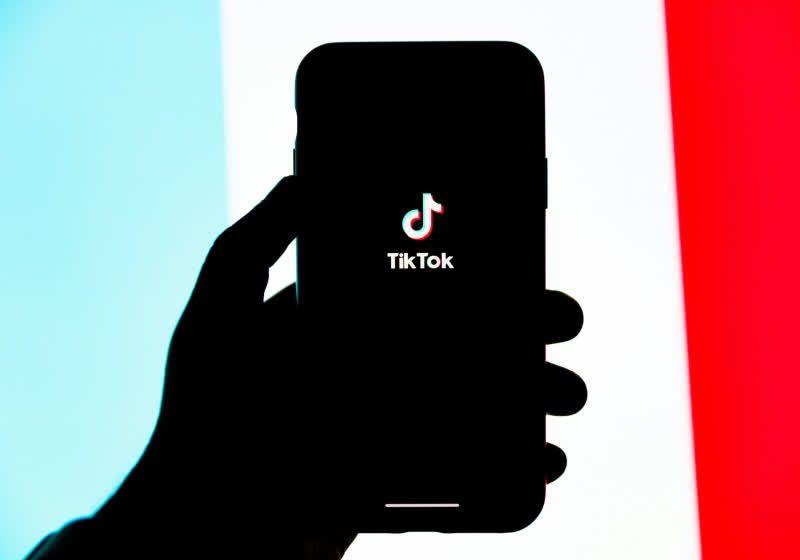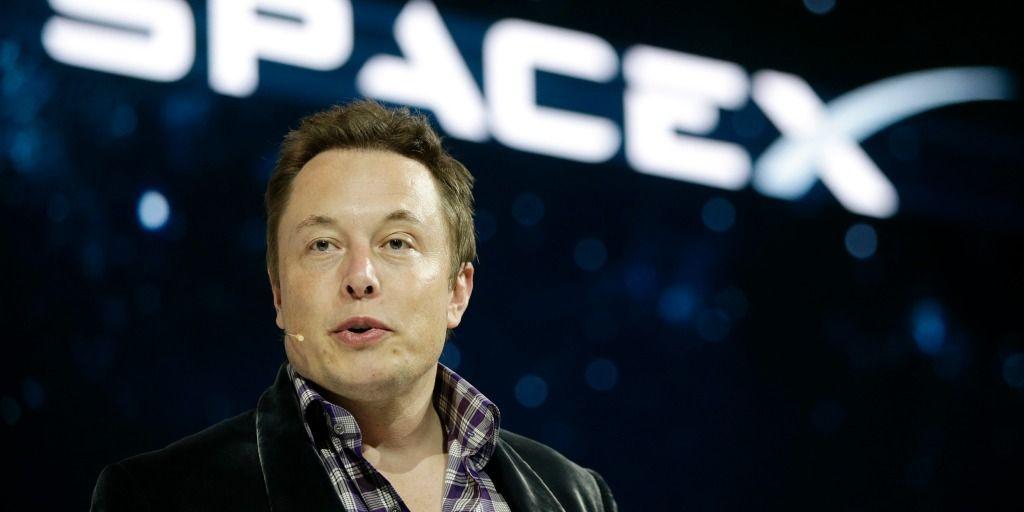TikTok's Legal Battle: US Court Weighs Free Speech Concerns Against National Security
3 Sources
3 Sources
[1]
TikTok's Future Hangs In Balance As Judges Express Skepticism In US Court Battle
ByeDance-owned TikTok, the widely-used social media platform for creating and sharing short-form videos, has encountered a doubtful panel of judges. What Happened: TikTok and a group of creators are contesting a law, often referred to as "the TikTok ban," in front of a three-judge panel at the DC Circuit Court of Appeals. During oral arguments on Monday, the judges, Chief Judge Sri Srinivasan, Judge Neomi Rao, and Judge Douglas Ginsburg, seemed to scrutinize TikTok's counsel more rigorously than the U.S. Department of Justice, reported The Verge. The law mandates TikTok to separate from its Chinese parent company, ByteDance, by Jan. 19. TikTok contends that this ban would stifle its creators and limit the information accessible to Americans. See Also: Huawei Might Be Giving Apple A Run For Its Money In China, But Replacing The Tri-fold's Screen Could Cost You An iPhone Worth Of Cash DOJ upheld the law, asserting it as a necessary step against a company seen as a national security threat due to its alleged connections to a foreign government. The judges questioned the feasibility of asking TikTok to implement lesser measures, like disclosing its data and content moderation practices. As Rao and Srinivasan noted, this approach would rely on trusting a company the government suspects of being controlled by a foreign adversary, the report noted. At the end of TikTok's argument, Ginsburg disputed the social media giant's counsel Andrew Pincus' claim that the law targets the company. The judge explained that it applies to foreign-controlled firms and highlighted one facing urgent action after years of stalled negotiations. The judges also raised doubts about whether creators genuinely have a First Amendment stake in TikTok's ownership. Subscribe to the Benzinga Tech Trends newsletter to get all the latest tech developments delivered to your inbox. Why It Matters: Earlier in June, TikTok argued that the U.S. could have considered alternatives to banning the app to address national security concerns. TikTok's lawyers stated that the company had negotiated a 90-page national security agreement with the US government offering "multi-layered safeguards and enforcement mechanisms," which Congress disregarded when enacting the TikTok ban. Last week, it was reported that TikTok is strengthening its relationship with Amazon.com Inc. sparking rumors of a potential acquisition. TikTok's parent company ByteDance previously said that it would not be seeking a buyer for the social media giant. In a court filing, TikTok also said, "The Chinese government has made clear that it would not permit a divestment of the recommendation engine that is a key to the success of TikTok in the United States." Photo by XanderSt on Shutterstock Check out more of Benzinga's Consumer Tech coverage by following this link. Read Next: Google Co-Founder Sergey Brin Admits Company Was 'Too Timid' To Rollout ChatGPT-Like LLMs Despite Basically Inventing Them Disclaimer: This content was partially produced with the help of AI tools and was reviewed and published by Benzinga editors. Market News and Data brought to you by Benzinga APIs
[2]
Free speech? TikTok in court to argue against U.S. ban
What are the boundaries of the First Amendment? That's a question that continues to be asked in the 21st century, as the tech revolution evolves from the dot-com era to social media and generative AI. At the forefront of the latest free speech discussion is TikTok, which has exploded in popularity in recent years and now has 170M users in the U.S. The app, however, is owned by Chinese parent ByteDance (BDNCE), prompting serious concerns that it can be used for espionage or algorithmic propaganda manipulation. Others call the worries overblown, even likening them to a new Red Scare. Flashback: Former President Donald Trump sought to ban TikTok and force a sale of its U.S. business to an American company, and while a transaction with Oracle (ORCL) almost went through in 2020, the lawsuits piled up and an injunction was granted to prevent the app from being outlawed. The Biden administration later revoked the planned ban, but their positions on the matter have since reversed following a national security review. President Biden signed the PAFACA Act in April, which effectively banned TikTok in the U.S. by 2025 (unless it was divested), while Trump has vowed to "save TikTok in America" after calling Facebook (NASDAQ:META) the "enemy of the people." Things are now being hashed out in the legal system, where the case was presented before a three-judge panel in the U.S. Court of Appeals. "For the first time in history, Congress has imposed [an] extraordinary speech prohibition based on indeterminate future risks," argued Andrew Pincus, a partner at Mayer Brown representing TikTok. "Data would be extremely valuable to a foreign adversary trying to compromise the security states, [for] knowing what Americans' patterns are, who their contacts are, where they go, who they interact with, and what sorts of content interests them," countered DOJ lawyer Daniel Tenny, adding that much of the government's evidence is under seal as it could harm national security. Outlook: The battle is likely to end up at the Supreme Court, which would decide on remedies or uphold a ban that may benefit rivals like Instagram Reels (META), YouTube Shorts (NASDAQ:GOOG) (NASDAQ:GOOGL) and Snapchat Spotlight (NYSE:SNAP). China has warned that any "such practice of resorting to hegemonic moves" would "inevitably come back to backfire on the United States itself," though it's important to note that Beijing doesn't allow any American social media companies to operate within its borders. More importantly, the case will cement the U.S. national security playbook for dealing with China, which has already seen trade wars, export curbs and a heavy dose of protectionism. More on TikTok Montana's state-wide ban on TikTok blocked by federal judge TikTok parent ByteDance has reportedly approached banks for $9.5B corporate loan TikTok disputes US claims on ties with China in court filing Over 50 U.S. lawmakers and 21 states back DoJ's defense in TikTok ban Amazon to let TikTok users shop select products without leaving the video app
[3]
Wall Street Breakfast: TikTok Fate
What are the boundaries of the First Amendment? That's a question that continues to be asked in the 21st century, as the tech revolution evolves from the dot-com era to social media and generative AI. At the forefront of the latest free speech discussion is TikTok, which has exploded in popularity in recent years and now has 170M users in the U.S. The app, however, is owned by Chinese parent ByteDance, prompting serious concerns that it can be used for espionage or algorithmic propaganda manipulation. Others call the worries overblown, even likening them to a new Red Scare. Flashback: Former President Donald Trump sought to ban TikTok and force a sale of its U.S. business to an American company, and while a transaction with Oracle (ORCL) almost went through in 2020, the lawsuits piled up and an injunction was granted to prevent the app from being outlawed. The Biden administration later revoked the planned ban, but their positions on the matter have since reversed following a national security review. President Biden signed the PAFACA Act in April, which effectively banned TikTok in the U.S. by 2025 (unless it was divested), while Trump has vowed to "save TikTok in America" after calling Facebook (META) the "enemy of the people." Things are now being hashed out in the legal system, where the case was presented before a three-judge panel in the U.S. Court of Appeals. "For the first time in history, Congress has imposed [an] extraordinary speech prohibition based on indeterminate future risks," argued Andrew Pincus, a partner at Mayer Brown representing TikTok. "Data would be extremely valuable to a foreign adversary trying to compromise the security states, [for] knowing what Americans' patterns are, who their contacts are, where they go, who they interact with, and what sorts of content interests them," countered DOJ lawyer Daniel Tenny, adding that much of the government's evidence is under seal as it could harm national security. Outlook: The battle is likely to end up at the Supreme Court, which would decide on remedies or uphold a ban that may benefit rivals like Instagram Reels (META), YouTube Shorts (GOOG, GOOGL) and Snapchat Spotlight (SNAP). China has warned that any "such practice of resorting to hegemonic moves" would "inevitably come back to backfire on the United States itself," though it's important to note that Beijing doesn't allow any American social media companies to operate within its borders. More importantly, the case will cement the U.S. national security playbook for dealing with China, which has already seen trade wars, export curbs and a heavy dose of protectionism. Amazon (AMZN) workers will soon return to the pre-COVID setup of being in the office five days a week, according to a letter from CEO Andy Jassy issued to employees. "Before the pandemic, it was not a given that folks could work remotely two days a week, and that will be true moving forward - our expectation is that people will be in the office outside of extenuating circumstances or if you already have a Remote Work Exception approved," he wrote. Amazon will also bring back assigned desk arrangements in certain locations and cut down the number of managers on teams. (77 comments) Cuba has reduced the size of its subsidized bread rations for citizens after the country ran short of wheat flour. The move comes against the backdrop of food shortages and a deepening economic crisis that has led to the exodus of almost half a million Cubans to the U.S. over the last two years. The bread ration is part of a decades-old subsidy scheme created by the late Fidel Castro for deeply discounted necessities, though the government currently provides only a fraction of the products under the program, which often arrive late and are of poor quality. (4 comments) Tupperware Brands (TUP) is reportedly preparing to file for bankruptcy as soon as this week and is planning to enter court protection. The preparations come after protracted negotiations between the company and lenders over how to manage its over $700M debt load. Demand has waned significantly in recent years and company announced in June that it will close its last remaining U.S. factory. The brand has also been impacted by intense competition, bad management decisions, a lack of innovation and its reliance on direct sales. (6 comments)
Share
Share
Copy Link
TikTok faces a critical moment in US courts as judges express skepticism over the constitutionality of a potential ban. The case highlights the tension between free speech and national security concerns.

TikTok's Legal Challenge to Potential US Ban
TikTok, the popular video-sharing app owned by Chinese company ByteDance, is currently embroiled in a high-stakes legal battle in the United States. The company is fighting against a potential ban that could see it removed from app stores across the country. This case has brought to the forefront the delicate balance between free speech rights and national security concerns
1
.Judicial Skepticism and Constitutional Concerns
During recent court proceedings, federal judges expressed significant skepticism about the constitutionality of banning TikTok. The judges questioned whether such a move would infringe upon the First Amendment rights of millions of American users. This skepticism suggests that the government may face substantial hurdles in justifying a complete ban on the app
2
.National Security Arguments
The U.S. government's primary argument for banning TikTok centers on national security concerns. Officials claim that the Chinese government could potentially access user data through ByteDance, posing a threat to American interests. However, TikTok has consistently denied these allegations, stating that it does not share user data with the Chinese government and that it stores U.S. user data on servers outside of China
3
.Potential Economic Impact
A ban on TikTok could have far-reaching economic consequences. The app has become a significant platform for content creators and advertisers, with many building their livelihoods around it. A sudden removal from the U.S. market could disrupt these ecosystems and potentially lead to job losses in the digital content industry
1
.Related Stories
Global Implications
The outcome of this legal battle could set a precedent for how democratic nations deal with apps and technologies developed in countries with different political systems. It may influence international digital policy and trade relations, particularly between the United States and China
2
.TikTok's Defense Strategy
TikTok's legal team is arguing that a ban would violate not only the company's rights but also those of its users. They contend that the app has become a unique platform for free expression, particularly for younger generations. The company has also highlighted its efforts to address security concerns, including plans to store U.S. user data on Oracle servers
3
.As the legal proceedings continue, the fate of TikTok in the United States remains uncertain. The court's decision will likely have significant implications for the future of social media regulation, international technology companies operating in the U.S., and the broader landscape of digital free speech.
References
Summarized by
Navi
[2]
[3]
Related Stories
US Defends Law Forcing TikTok Sale, Citing National Security Concerns
27 Jul 2024

Perplexity AI Proposes Merger with TikTok, Offering U.S. Government 50% Stake
27 Jan 2025•Business and Economy

Elon Musk Emerges as Potential Buyer for TikTok's US Operations Amid Ban Concerns
14 Jan 2025•Business and Economy

Recent Highlights
1
French Police Raid X Office as Grok Investigation Expands to Include Holocaust Denial Claims
Policy and Regulation

2
OpenAI launches Codex MacOS app with GPT-5.3 model to challenge Claude Code dominance
Technology

3
Anthropic releases Claude Opus 4.6 as AI model advances rattle software stocks and cybersecurity
Technology





